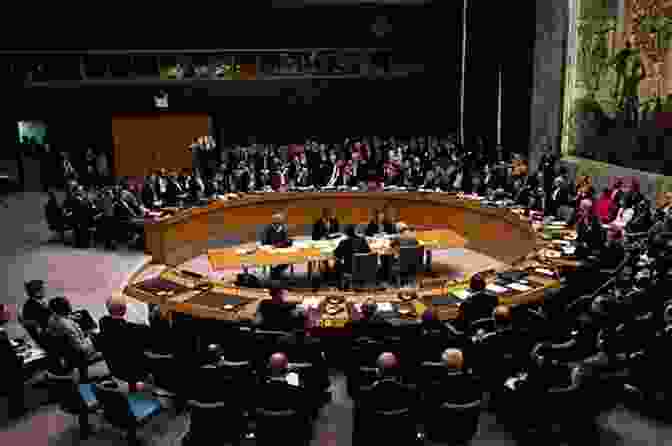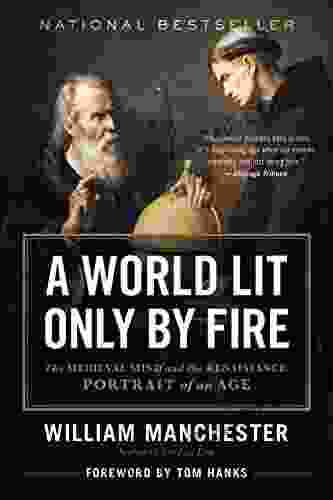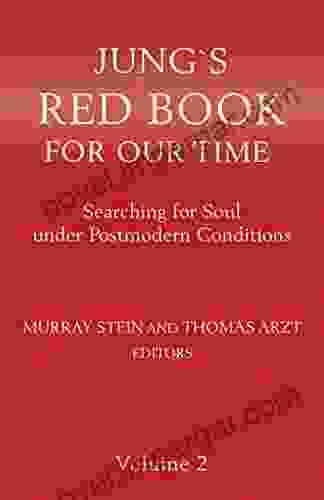Unveiling the Flawed Foundations of Global Security: A Critique of the UN Security Council and Member States


In the ever-evolving landscape of global affairs, the United Nations Security Council (UNSC) stands as a cornerstone of international diplomacy. Tasked with the daunting responsibility of maintaining international peace and security, the council has played a pivotal role in shaping the post-World War II world Free Download. However, a thorough examination of the UNSC's structure, decision-making processes, and track record reveals a deeply flawed institution that undermines its own stated objectives.
5 out of 5
| Language | : | English |
| File size | : | 2556 KB |
| Text-to-Speech | : | Enabled |
| Screen Reader | : | Supported |
| Enhanced typesetting | : | Enabled |
| Word Wise | : | Enabled |
| Print length | : | 265 pages |
Structural Deficiencies
The UNSC's fundamental structure perpetuates an imbalance of power that runs counter to its principles of equality and inclusivity. Five permanent members—the United States, the United Kingdom, France, China, and Russia—wield disproportionate influence over the council's proceedings. This veto power grants these countries the ability to obstruct resolutions that threaten their national interests, regardless of their alignment with international law or the collective will of the global community.
Moreover, the UNSC's non-permanent members are elected for a mere two-year term, a short tenure that limits their ability to meaningfully contribute to the council's long-term decision-making. The council's composition thus fails to reflect the changing global landscape and the growing influence of emerging powers.
Problematic Decision-Making
The UNSC's decision-making process is marred by a lack of transparency and accountability. Resolutions are often drafted behind closed doors, with minimal input from non-member states or civil society organizations. This opacity undermines the council's legitimacy and raises questions about the motives and negotiations that shape its decisions.
Furthermore, the council's use of double standards and selective enforcement erodes its credibility. While swift action is often taken to address certain crises, others are ignored or met with indifference. This inconsistency undermines the rule of law and sends a message that the UNSC's commitment to justice and human rights is conditional.
Failed Track Record
Despite its mandate to maintain international peace and security, the UNSC has presided over a string of failures that have diminished its effectiveness. The failure to prevent the Syrian civil war, the ongoing conflict in Yemen, and the continued proliferation of nuclear weapons are just a few examples of the council's inability to fulfill its primary mission.
In many cases, the UNSC has been complicit in human rights violations and the suppression of dissent. Its inaction during the Rwanda genocide and its support for authoritarian regimes have tarnished its reputation and undermined its moral authority.
Member States' Complicity
The shortcomings of the UNSC are not solely attributable to its structural and procedural deficiencies. Member states also bear significant responsibility for the council's failures. Many states prioritize their own national interests over the collective good, undermining the spirit of cooperation and multilateralism.
The use of political pressure, financial incentives, and threats by powerful states to sway the council's decisions further undermines its independence and integrity. The result is a system where the interests of the few prevail over the needs of the many.
Path Forward
To address the flaws of the UNSC and restore its effectiveness, fundamental reforms are necessary. These include:
* Expanding the council's membership to include more permanent and non-permanent members, ensuring better representation and accountability. * Introducing a mechanism to override vetoes, ensuring that the council's decisions are not unilaterally obstructed by a single member. * Strengthening the council's transparency and accountability, involving non-member states and civil society in its deliberations. * Insisting on consistent and principled decision-making, avoiding double standards and selective enforcement. * Promoting greater cooperation and collaboration among member states, putting the collective interest ahead of national agendas. * Establishing an independent body to monitor the UNSC's activities and make recommendations for improvement.
The UNSC, as it currently stands, is a deeply flawed institution that undermines its own mission of maintaining international peace and security. Its structural deficiencies, problematic decision-making, failed track record, and complicity of member states have eroded its legitimacy and effectiveness.
To restore the UNSC's credibility and relevance, fundamental reforms are imperative. By expanding its membership, introducing a mechanism to override vetoes, increasing transparency and accountability, insisting on principled decision-making, and promoting cooperation among member states, we can create a more just and equitable global security system that truly serves the needs of all nations.
5 out of 5
| Language | : | English |
| File size | : | 2556 KB |
| Text-to-Speech | : | Enabled |
| Screen Reader | : | Supported |
| Enhanced typesetting | : | Enabled |
| Word Wise | : | Enabled |
| Print length | : | 265 pages |
Do you want to contribute by writing guest posts on this blog?
Please contact us and send us a resume of previous articles that you have written.
 Book
Book Novel
Novel Page
Page Chapter
Chapter Text
Text Story
Story Genre
Genre Reader
Reader Library
Library Paperback
Paperback E-book
E-book Magazine
Magazine Newspaper
Newspaper Paragraph
Paragraph Sentence
Sentence Bookmark
Bookmark Shelf
Shelf Glossary
Glossary Bibliography
Bibliography Foreword
Foreword Preface
Preface Synopsis
Synopsis Annotation
Annotation Footnote
Footnote Manuscript
Manuscript Scroll
Scroll Codex
Codex Tome
Tome Bestseller
Bestseller Classics
Classics Library card
Library card Narrative
Narrative Biography
Biography Autobiography
Autobiography Memoir
Memoir Reference
Reference Encyclopedia
Encyclopedia Ron E Hassner
Ron E Hassner Will Hanley
Will Hanley Sharon Graham Niederhaus
Sharon Graham Niederhaus William Edgar
William Edgar Sarajane Case
Sarajane Case Richard Rubin
Richard Rubin Scott Thorson
Scott Thorson Ronald S Coffman
Ronald S Coffman Susannah Hagan
Susannah Hagan Robert Dilts
Robert Dilts Shailaza Singh
Shailaza Singh Robert Somerville
Robert Somerville Wesley L Fox
Wesley L Fox Sharron I Ware
Sharron I Ware Susie Hodge
Susie Hodge Sean Patrick
Sean Patrick Roland Levy
Roland Levy Russell K Lanier
Russell K Lanier Rob Desalle
Rob Desalle Rob Simms
Rob Simms
Light bulbAdvertise smarter! Our strategic ad space ensures maximum exposure. Reserve your spot today!
 Percy Bysshe ShelleyFollow ·10.9k
Percy Bysshe ShelleyFollow ·10.9k Darnell MitchellFollow ·17.3k
Darnell MitchellFollow ·17.3k Lee SimmonsFollow ·10.2k
Lee SimmonsFollow ·10.2k Jacques BellFollow ·11.9k
Jacques BellFollow ·11.9k Camden MitchellFollow ·9.7k
Camden MitchellFollow ·9.7k Ignacio HayesFollow ·16.3k
Ignacio HayesFollow ·16.3k Forrest BlairFollow ·11.3k
Forrest BlairFollow ·11.3k John GreenFollow ·6.4k
John GreenFollow ·6.4k

 Colt Simmons
Colt SimmonsLarge Collieries Iron Mines Stone Iron And Tinplate...
Step back in time and witness...

 Zachary Cox
Zachary CoxUnlocking the Secrets of Woody Plants: An In-Depth...
: Embark on a captivating journey into the...

 Yasunari Kawabata
Yasunari KawabataIntroducing 'Librarian Guide: 3rd Edition' – The Ultimate...
In the dynamic and ever-evolving...

 Jerome Blair
Jerome BlairEvading Honesty: A Masterful Exploration of Deceit and...
Prepare to be captivated...

 Timothy Ward
Timothy WardLove Is Real: A Novel of Love, Loss, and the Enduring...
Prepare to embark on a...
5 out of 5
| Language | : | English |
| File size | : | 2556 KB |
| Text-to-Speech | : | Enabled |
| Screen Reader | : | Supported |
| Enhanced typesetting | : | Enabled |
| Word Wise | : | Enabled |
| Print length | : | 265 pages |














